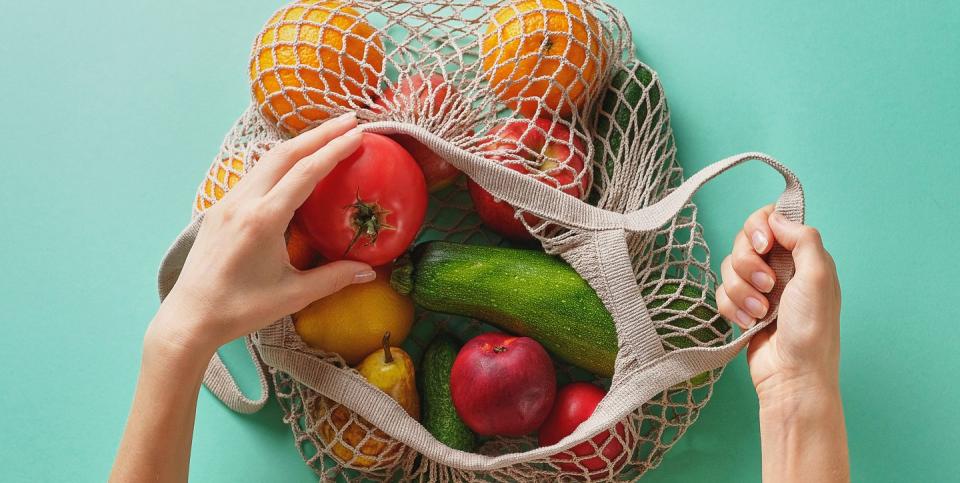What is the 3:2 ratio?

You know you should be getting your five a day. But a new study, published in the journal Circulation has revealed the optimal breakdown – two pieces of fruit and three pieces of veg – to reap the life-lengthening effects of their nutrients. Here’s how to maximise the 3:2 ratio…
FOR HYDRATION
Low-fibre fruits like watermelon may be even better at hydrating our bodies than water. Bananas contain 74 per cent water and are a source of the electrolytes potassium and magnesium. Mineral salts are key when it comes to hydration, and spinach is one of the richest dietary sources of magnesium. Lettuce is 96 per cent water, while bell peppers are both hydrating and a great source of vitamin C.
FOR IMMUNITY
Vitamin C helps to boost the levels of white blood cells that fight infection, and oranges and spinach are great sources of it. Blueberries and broccoli are fully of immunity-boosting antioxidants, while mushrooms are one of the few food sources to provide vitamin D – although most people should still take a supplement during the winter months.
FOR ENDURANCE
Beetroot has been shown to improve cardiorespiratory endurance, while sweet potato is a great source of slow-release carbohydrates. Kale, meanwhile, is a good non-meat source of runner-friendly iron. Studies have shown bananas are as effective as energy gels for powering performance, while dates are packed with carbohydrates.
FOR RECOVERY
Pineapple contains an enzyme called bromelain that reduces swelling, whileavocado is full of antioxidants that promote recovery. Packed with vitamin C, Brussel sproutsboost your immune system post exercise. The vitamin A in carrots and squash, meanwhile, promote the production of white blood cells that fight off infection.
You Might Also Like

 Yahoo Finance
Yahoo Finance 